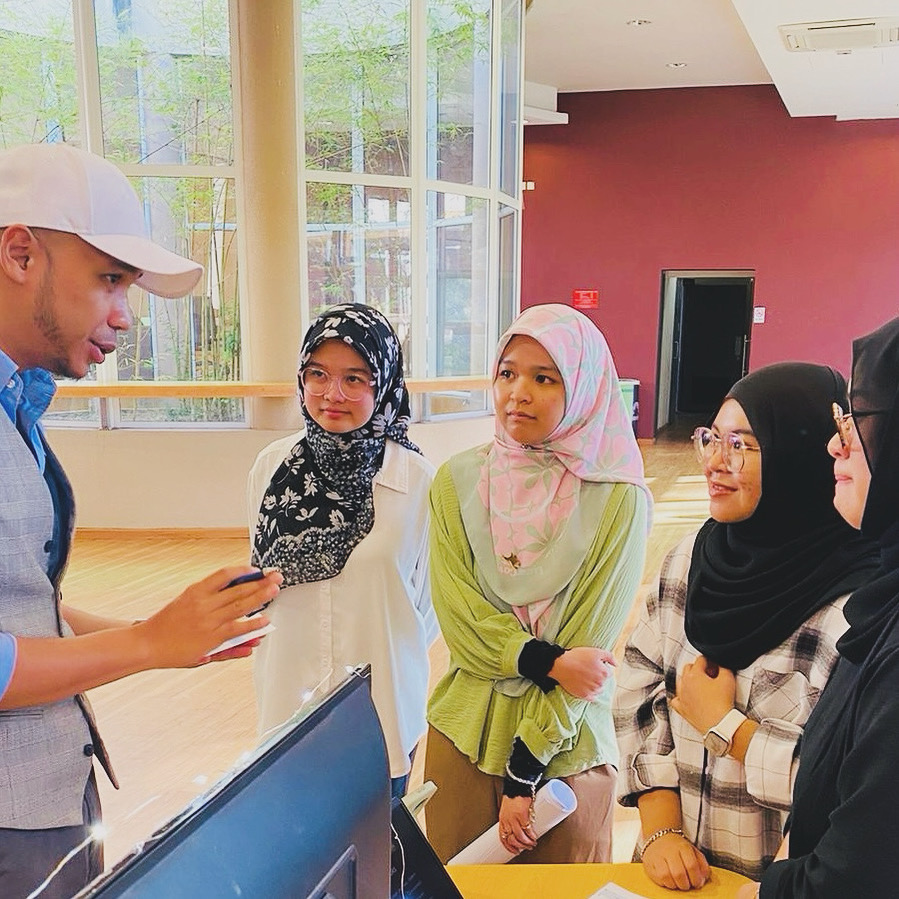A few days ago, I received an email from the university asking if I could mentor students who are participating in the business incubator program. Naturally, I was excited to accept the invitation, although I had to adjust my availability to the afternoon sessions, as I already have classes to teach in the mornings. Mentoring, for me, is a deeply rewarding experience—especially when I can focus on the topics I’m most passionate about: the brain and human behavior.
As with many universities in Indonesia, UBD encourages entrepreneurship among its students, and this program is no exception. I’ve been consistently impressed with the creativity and innovation the students bring to the table. They come up with intriguing ideas, full of potential. However, in mentoring them, I’ve noticed a common challenge that seems to persist in entrepreneurial circles: many students seem hesitant to step outside the traditional ways of thinking. It’s as if they are reluctant to put themselves in the shoes of the consumer, and this can hold them back significantly.
This is particularly important because we know that a majority of start-ups tend to fail within their first two years, often due to a lack of customers. The root of the problem is not always in the quality of the product but in its relevance to the target market. Many start-ups create products or services that, while innovative, don’t meet the needs or desires of their potential customers. And even when they do create something valuable, their communication strategies can unintentionally stimulate the critical thinking of consumers, leading to doubt instead of a sale.
Reflecting on my own experiences as a student, I realize that competencies like these—understanding market needs and mastering communication strategies—were rarely emphasized during my undergraduate studies. This points to a larger trend: universities must evolve with the times, adjusting their curricula to meet the challenges of today’s fast-changing world. Modules and programs need to adapt, especially when it comes to preparing students for entrepreneurial ventures.
However, curriculum changes alone are not enough. At the heart of any education system are the teachers and the students—the ones who deliver and absorb the knowledge. Therefore, it’s crucial to understand what influences their thought processes. What barriers are students facing that prevent them from thinking creatively or from seeing the world from the perspective of their consumers? It’s a simple yet essential concept—one that is frequently overlooked in education.
It reminds me of how some curricula fail to see students as the “consumers” of education. Just as businesses need to design products that appeal to their customers, educators must create learning experiences that resonate with the way students think and learn.
As I continue to mentor these bright young minds, I hope to inspire them to be more fearless in their thinking, to embrace perspectives beyond their own, and to understand the critical role human behavior plays in entrepreneurship. Innovation thrives not just on good ideas, but on how well those ideas connect with the people they aim to serve.
With the recent election of Indonesia’s new President, I want to take this opportunity to offer my sincere congratulations. A new era of leadership brings with it new possibilities and the hope of meaningful progress. Along with this new leadership, I also look forward to the changes that might come under the new Minister of Higher Education, Research, and Technology.
My hope is that, as they shape the future of education and research in Indonesia, they take into account how human behavior responds to the programs and initiatives they propose. By understanding the way people think, act, and react, we can design educational policies that truly resonate with society, nurturing innovation that not only meets the needs of today but also anticipates the demands of tomorrow.
It’s an exciting time, and I am optimistic that we are moving towards a future where education, research, and human understanding work together to bring about positive change. Here’s to progress, thoughtful leadership, and a brighter future for Indonesia.



